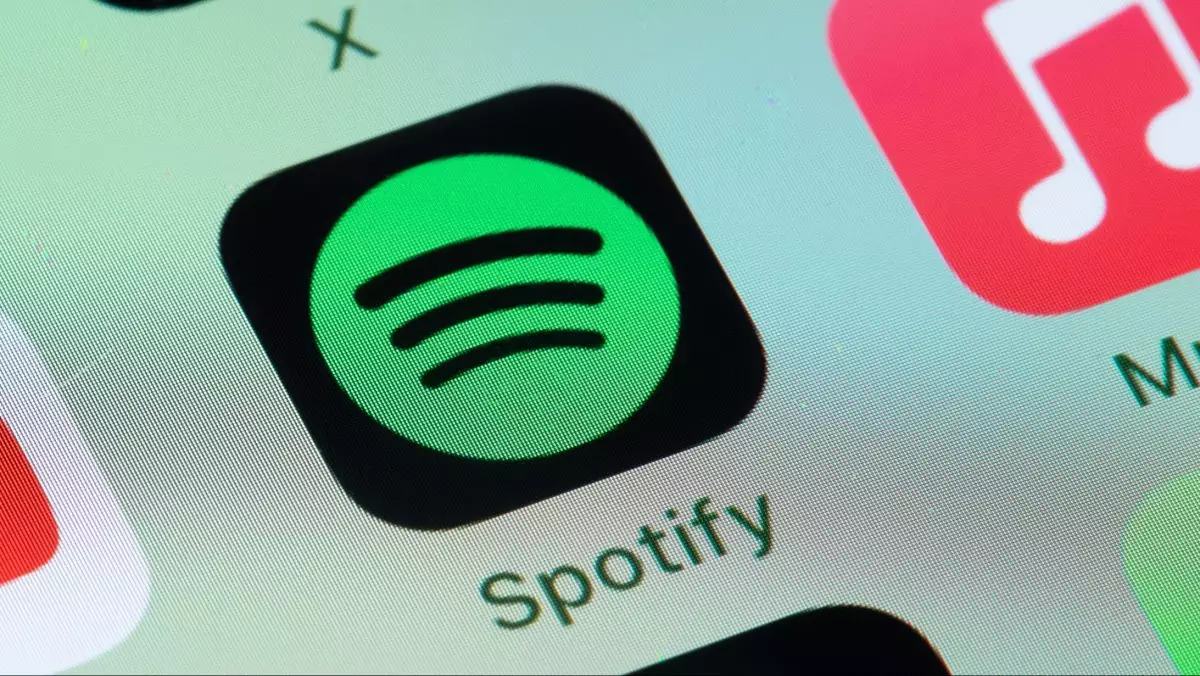Spotify has recently scored a significant victory with Apple’s approval of its U.S. app update, which now allows the streaming platform to provide users with crucial pricing information and access to external payment links. This breakthrough comes shortly after a U.S. court mandated Apple to cease charging commissions on purchases made through iPhone applications. By finally overcoming this restrictive barrier, Spotify is set to revolutionize how consumers interact with services on the iOS platform.
Empowering Consumers and Creatives
Spotify spokesperson Jeanna Moran articulated the potential repercussions of this update, asserting this change fosters “transparency and choice for U.S. consumers.” This means consumers will now enjoy clearer insights into pricing, along with the freedom to make purchasing decisions that align with their needs. By circumventing Apple’s prior restrictions and their notorious 30% service fees on in-app purchases, Spotify can offer users lower subscription prices and enhance the overall purchasing experience.
This update resonates well with musicians, creators, and entrepreneurs who have long contended against the monopolistic practices prevalent in app marketplaces. The impact extends beyond just pricing—it symbolizes a more equitable environment for developers seeking diverse revenue streams without being weighed down by exorbitant fees.
Spotify Takes Charge in the Digital Marketplace
The latest app version, 9.0.40, is poised to set a benchmark in the app landscape, marking Spotify as one of the first major players to implement such a transformative update. Typically, app developers have been hampered by stringent guidelines that dictate integration with payment systems, but Spotify has taken strides to lead the charge towards a reformed digital marketplace. With authorized links directing customers to their website for purchases, the barriers that have historically limited direct consumer engagement are beginning to crumble.
Furthermore, the ability to communicate promotional offers directly within the app further enhances user experience, giving Spotify a competitive edge and enabling a more dynamic user interface. This move not only promotes customer loyalty but allows Spotify to cater to users’ unique preferences by providing tailored deals, something previously restricted by Apple’s guidelines.
The Broader Implications of the Court Ruling
The U.S. District Judge Yvonne Gonzalez Rogers opened a Pandora’s box of implications with her verdict calling out Apple’s noncompliance in reforming its App Store policies. Although Apple has stated its disagreement with this ruling and plans to appeal, the reality is that a judicial endorsement of competitive practices could severely alter the landscape of app monetization.
In light of these developments, everywhere you look, small to mid-sized developers could find themselves with enhanced freedom to redirect users to their websites, fostering a thriving ecosystem that offers innovative services without oppressive fees. This shift might be the catalyst that inspires other tech giants to reconsider their own policies, thus promoting an environment rife with creativity and entrepreneurship.
Spotify’s triumph, therefore, is not merely a win for the company—it represents a collective affirmation for artists, developers, and consumers advocating for a more just and transparent digital economy. The implications of this new paradigm could resonate across various sectors, setting a powerful precedent for the future of digital commerce.

